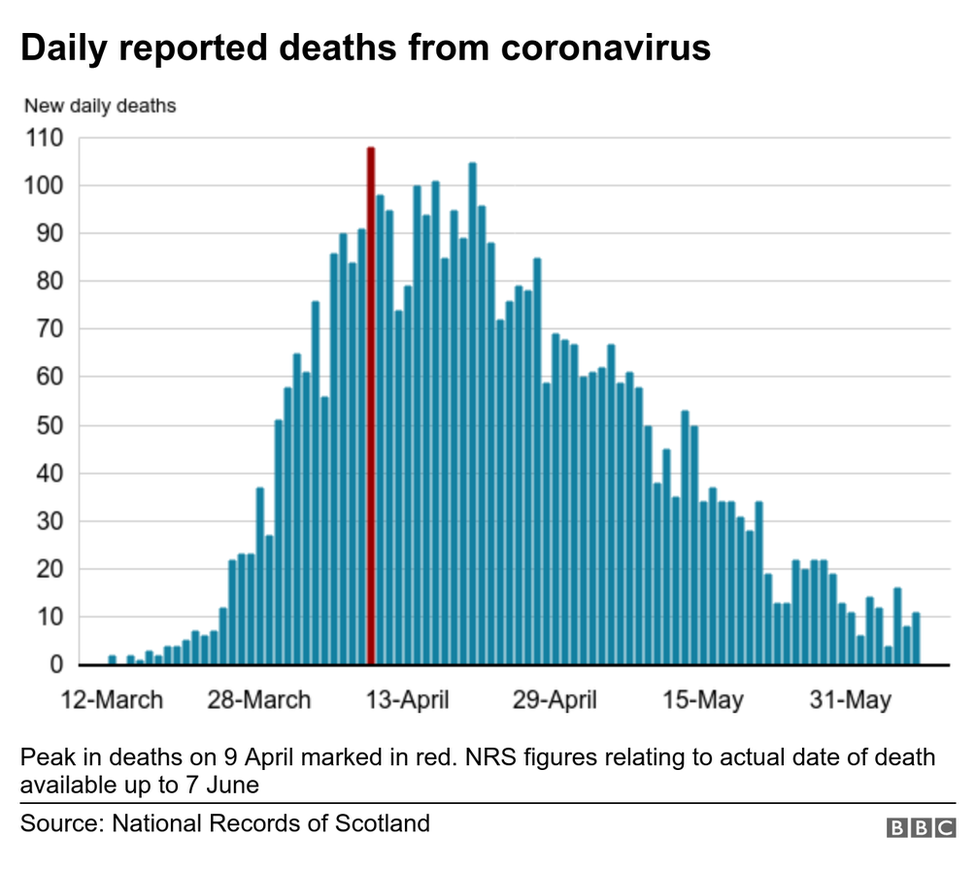Coronavirus: Death rates twice as high in deprived areas
- Published
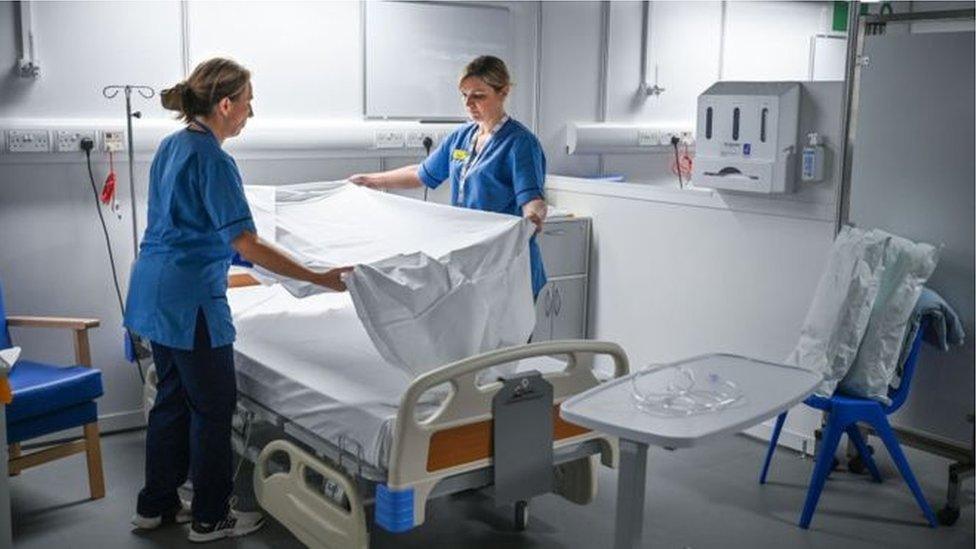
People living in Scotland's most deprived areas are twice as likely to die of Covid-19 as those in the least deprived areas, figures have shown.
The National Records of Scotland (NRS) said the death rate was 2.1 times higher in the poorest areas.
Its latest statistics, external also showed that 70 deaths linked to the coronavirus were registered between 8 and 14 June.
That figure was 19 lower than the previous week, and was the seventh weekly reduction in a row.
Weekly deaths from all causes totalled 1,032, 3% higher than average.
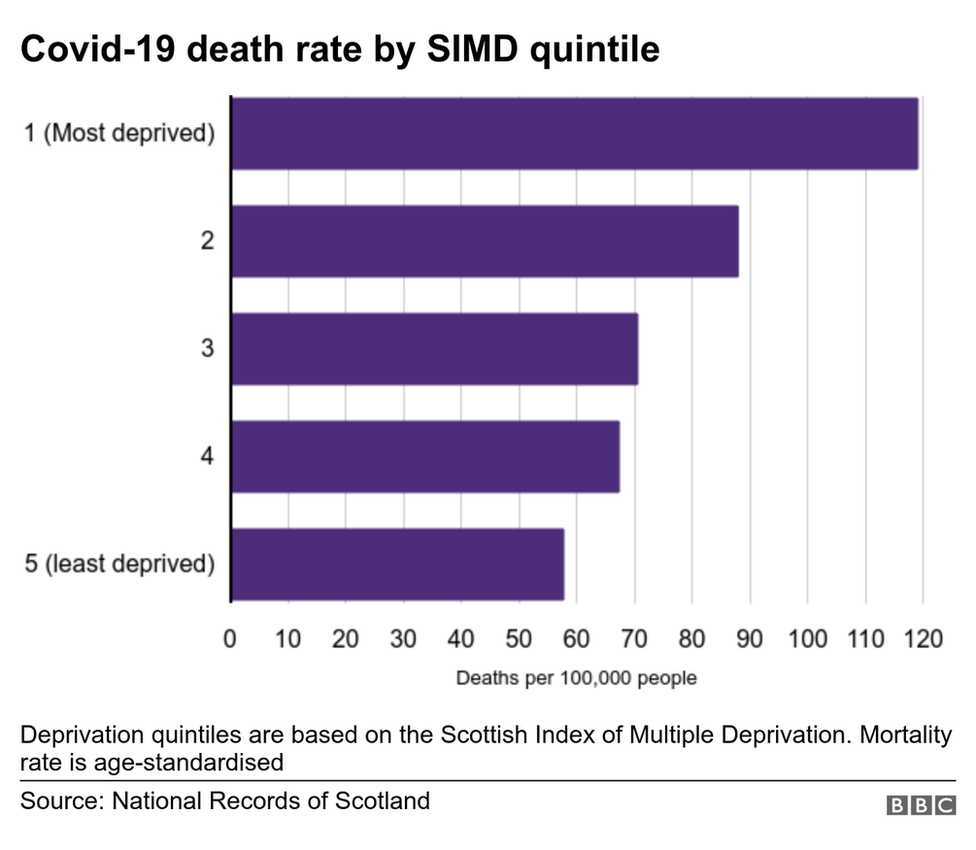
The weekly total of deaths in hospitals is now lower than the five-year average for this time of year but deaths at home is well above average.
Deaths from all causes in care homes have returned to near-normal levels.
NRS has also broken down Covid deaths by occupation, although this is based on relatively small numbers as most of those who have died were older than normal working age.
The highest rate of deaths was among "process, plant and machine operatives".
Compared to all occupations, health care workers had a lower than average Covid death rate (5.9 per 100,000 population).
But social care workers, at 13.6 per 100,000 population, had a higher Covid death rate than other workers.
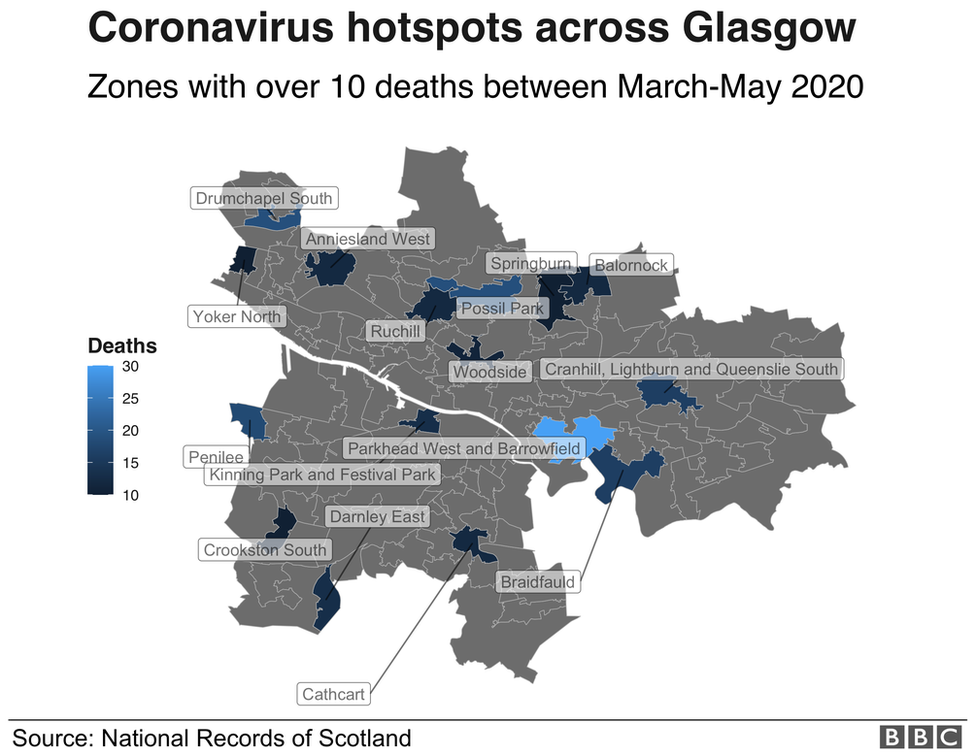
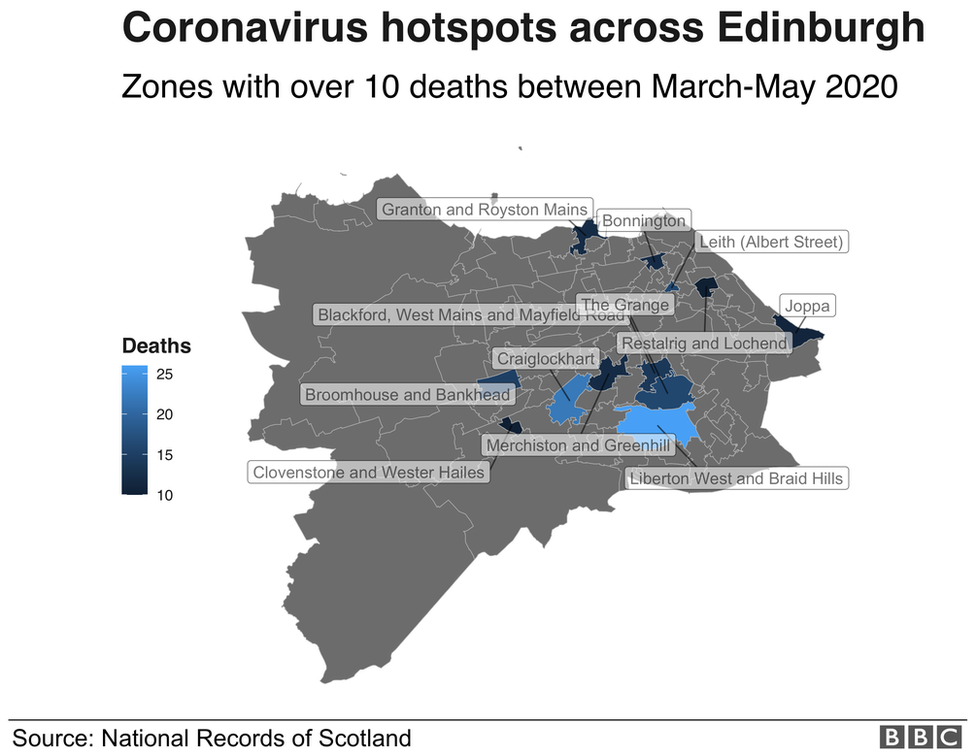
The NRS analysis confirmed an association with underlying health problems.
Of those who died with Covid in May, 92% had at least one pre-existing condition.
A breakdown of the statistics by geographical location indicated a marked contrast between cities and countryside.
Large urban areas had a Covid death rate (of 111.2 per 100,000 population) over four times higher than remote rural locations.
Director of statistical services Pete Whitehouse said: "Every death from this virus is a tragedy.
"These statistics, alongside the other important evidence being made available by the Scottish government and Health Protection Scotland (HPS), are valuable to the understanding of the progress and impact of the Covid-19 virus across Scotland."
